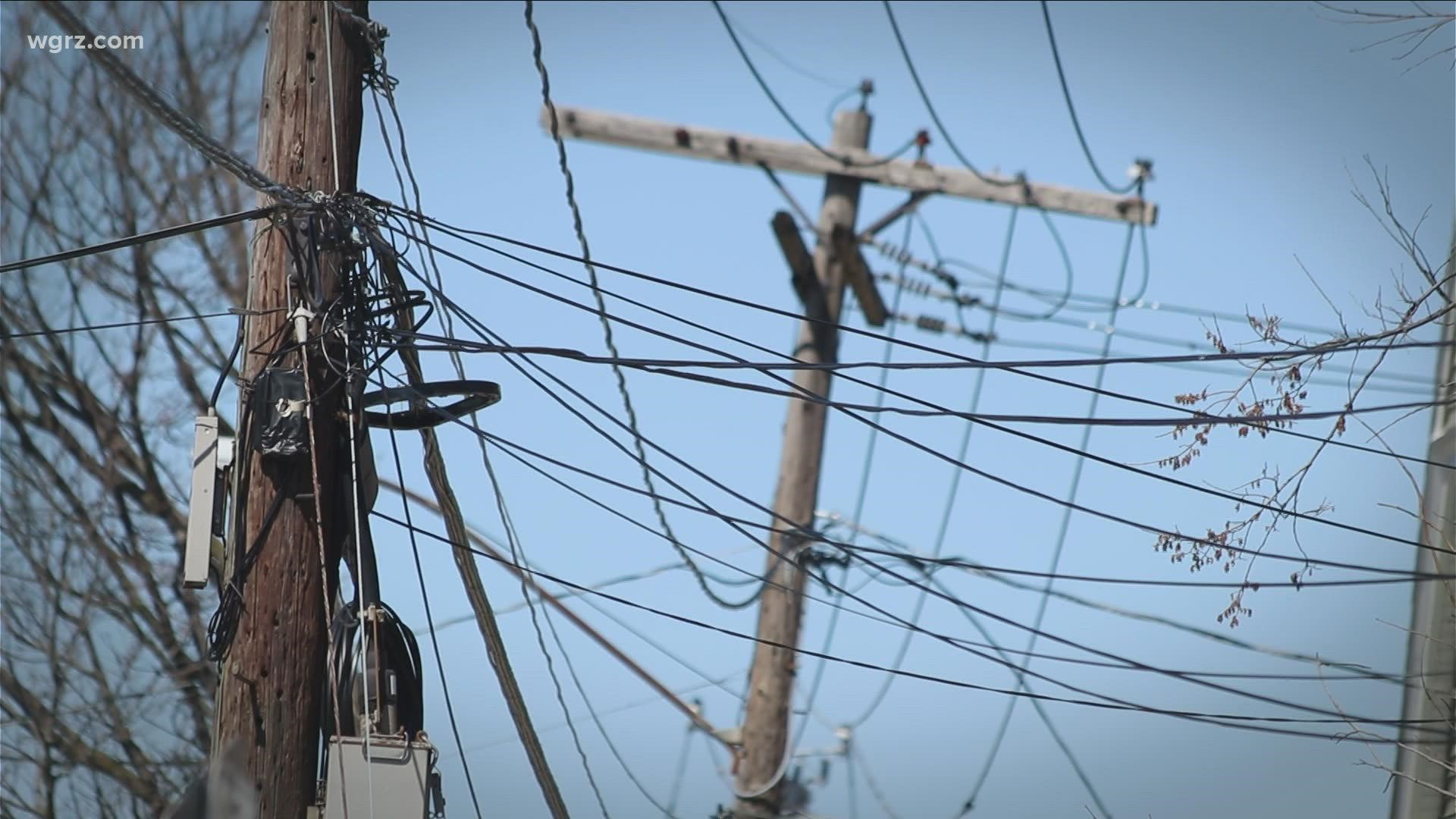BUFFALO, N.Y. — Back in 2019, 2 on Your Side sought to find out why there was only one internet provider in the City of Buffalo.
We learned that the issue was complicated. So complicated, in fact, that city hall officials refused to talk to us about it, nor would they respond to our foil requests about the issue.
Fast forward to December 23, 2019, and the Buffalo Common Council updated its rules that would ultimately allow for new internet providers to set up shop in the queen city.
Now, almost two-and-a-half years later, there are still barriers slowing down broadband rollout.
Buffalo Common Council member Joel Feroleto says that city government has done all it can.
"The one thing that we're hearing is that the issue and what's delaying things is getting easements from private property owners to put in the infrastructure to have the high-speed internet," Feroleto said in his office at city hall. "The city of Buffalo is not and cannot require a private property owner to enter into an easement agreement with the utility."
Feroleto says the signing of an easement agreement is completely up to the property owner.
So you may be asking yourself, what's an easement agreement?
"An easement agreement that the company in question is proposing just gives that company permission to enter the landowners land to work on or adjust its equipment, or cabling," said Martha Buyer, a telecommunications attorney based in Western New York.
Buyer says that these agreements run with the land, from property owner to property owner as it's sold over time. She says it's likely there have been easement agreements in place for your property for decades, such as National Fuel National Grid and other communication providers. Those grandfathered agreements are found in the title of your property.
"These are very basic agreements," Buyer said. "The only thing to watch for in their agreement is that if they damage your property, they have to restore it to the condition that it was in before."
A utility company isn't required to make the property better if damaged, they're only required by the agreement to fix it.
"In terms of what they give the consumer directly, in most cases, it's nothing other than the opportunity for a competitive process for broadband in Western New York and the city of Buffalo," Buyer said.
How does this relate to Buffalo's broadband build-out?
Greenlight networks, the Rochester-based internet provider, announced they are bringing high-speed internet to Buffalo in 2019. They're currently constructing service on the west side, and the Elmwood Village.
If you look at Greenlight's Buffalo availability map, you'll see pockets of neighborhoods where one block has service coming in the next street over doesn't. This is where easement agreements come into play.
2 On Your Side asked one city resident about why they didn't sign Greenlight's easement agreement, they asked not to have their face shown on camera, or use their name.
"The thing that turned me off is they wanted me to sign the back page of the easement," the resident said. "When I said well, I need to see the whole thing, and they said here's a sample."
The resident says Greenlight didn't provide them with a complete easement agreement.
2 On Your Side reached out to Greenlight for comment on this story, but they did not provide one. Greenlight, however, has an entire section of its website dedicated to easement information.
Easement agreements are transferred with the property when it's sold. So for the Buffalo resident, they were wary of signing without seeing the full document.
"I'm making a decision that's going to impact future owners of the house, that's not a small deal."
2 On Your side asked the resident if the situation could be salvaged so the neighborhood could get connected.
They said it could not.
"Point the finger at Greenlight for dropping the ball here, you know, not me."
Buffalo hasn't had competition internet competition since dial-up went the way of the Dodo and a very small section of North Buffalo that has FIOS — which hasn't connected anyone new, to our knowledge, in nearly a decade.
Feroleto says that education about easements is likely needed and the biggest barrier for rollout right now.
"I've had a lot of residents in the Elmwood Village contact my office about Greenlight and wanting options for high-speed internet," Feroleto said. "The reason why it's not there at this point is that Greenlight has not been able to get the easements required, as soon as that happens, it would be up within weeks."
For those wary of signing an agreement, Buyer says they're standard in the telecom world.
"My perspective, there just isn't a good reason to say no," Buyer said. "There's nothing that they're asking for that's unreasonable."

